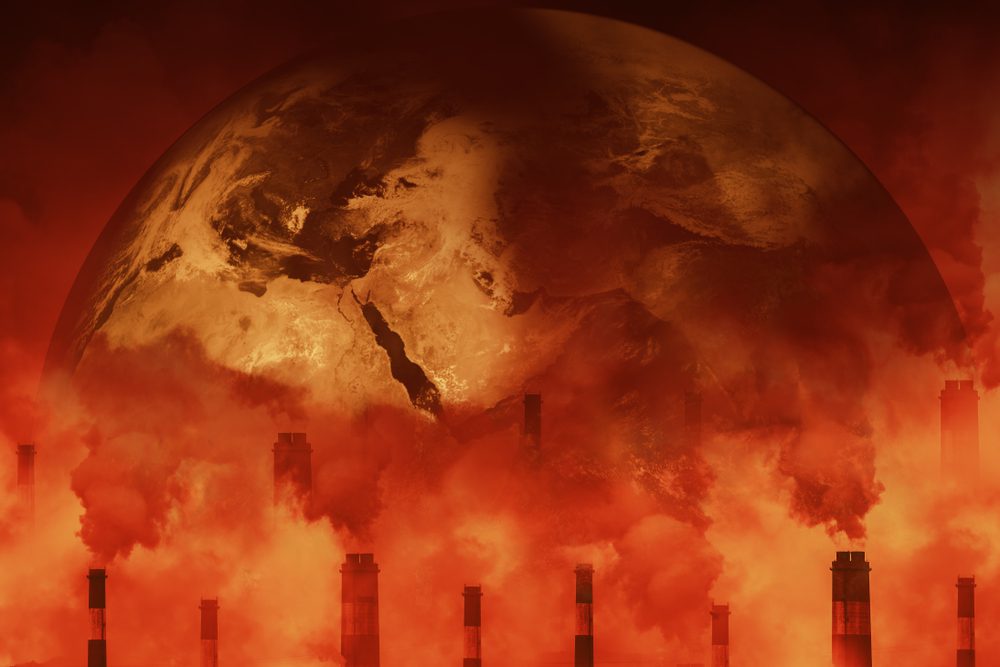
On Monday, February 28th, the Intergovernmental Panel on Climate Change (IPCC) released the second part of its latest report. The report of the so-called working group II, called “Climate Change 2022: Impacts, Adaptation, and Vulnerability,” is dedicated to the effects of climate change on human beings world wide.
The report estimates that half of the world’s population is vulnerable to increasingly dangerous climate impact. According to the report, there remains only “a brief and rapidly closing window of opportunity to secure a liveable and sustainable future for all.” Carbon emissions are to blame for “potentially irreversible” damage, a claim that led UN Secretary-General Antonio Guterres to react to the report: “adaptation saves lives…delay means death.”
The report generated responses from around the globe.
From South Africa, the IPCC working group II co-chair Debra Roberts sent out the alarm. Global warming theoretically increases arctic melt, exposing coastal communities to flooding. The report estimates that when average warming passes 1.5 degrees celsius, sea levels will rise to the point where coastal communities would lose any natural defense against the elements. According to Roberts, in an interview with Xinhua, coastal communities “are at the forefront of experiencing some of the most immediate climate change impacts.”
From Granada, the environment minister Simon Stiell concurred that “this report is terrifying; there is no other way of saying it … We need to see enhanced action and increased climate finance provision for adaptation. The scale of this crisis requires nothing less.”
At the UK-based charity Oxfam, Nafkote Dabi argued that the destabilization of the world’s climate was caused by wealthy nations, unjustly impacting the poor: “Inequality is at the heart of today’s climate crisis—in the little over 100 days since COP26, the richest 1 percent of the world’s population have emitted much more carbon than the population of Africa does in an entire year.”
While things might look grim, the report retains some hope for reversal, if the right measures are taken. “Climate change is killing people,” said co-author Helen Adams of King’s College London. “Yes, things are bad, but actually the future depends on us, not the climate.”
But not everybody agrees with the assessment of the report. Anthony Watts, senior fellow for environment and climate at The Heartland Institute, called the report “long on speculation and short on facts,” adding that “what facts exist, refute the alarming claims made in the report.”
Watts criticised the report for being alarmist, for announcing a “last chance” in a long row of “last chances,” dating back more than 30 years. According to him, the report “presents no hard, factual evidence to support the claim that the climate is worsening faster than expected, just future projections from computer models.” He also stressed that the IPCC is relying on climate models that have been discredited in the scientific literature, such as RCP8.5.
Already last year, after the release of the first part of the latest IPCC reports, the modelmakers of the report admitted that the projected warming rates of their report are implausibly fast. While the burning of fossil fuels is often linked to the warming rate, “there simply isn’t enough fossil fuel in existence on the planet to make it happen,” says Watts.
Roger Pielke Jr., professor at the environmental studies program in Colorado, had some insightful things to say about the report’s findings in respect to climate science’s credibility. “As extreme climate scenarios have become discredited over the past 5+ years, both IPCC workgroups I and II chose to increase their emphasis on them,” a poor decision “for the credibility and legitimacy of IPCC assessments.”
